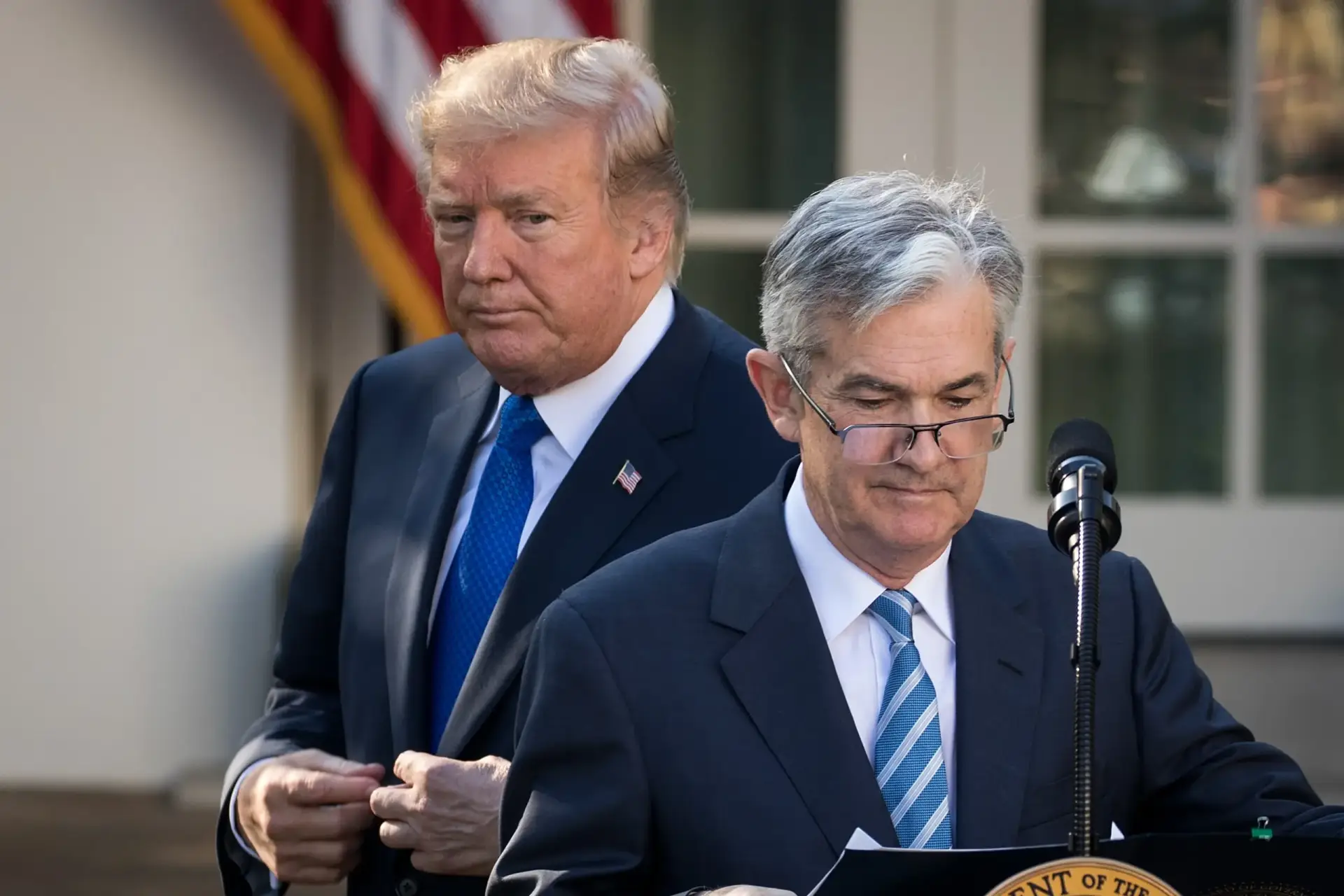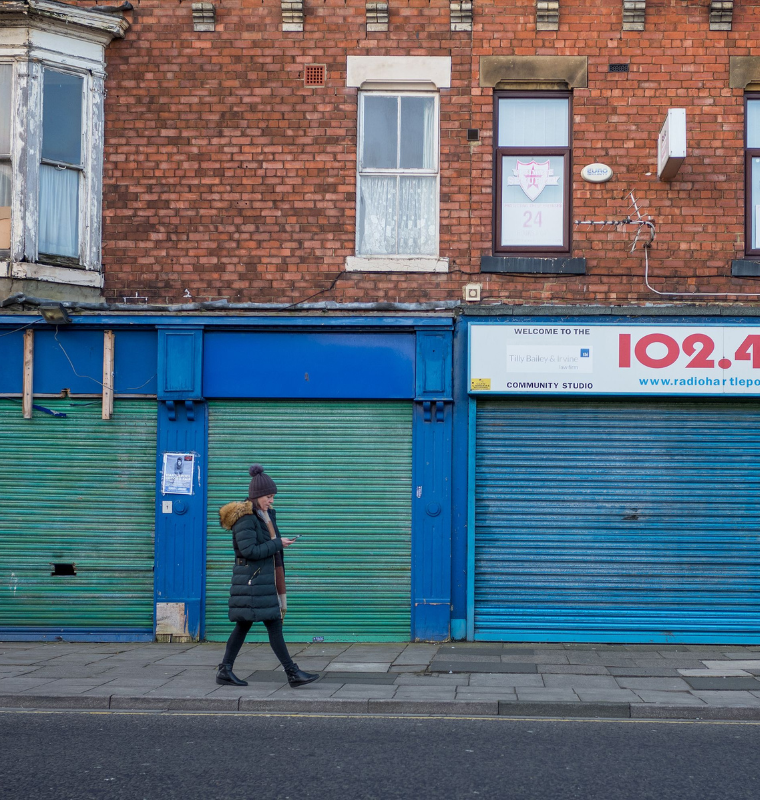Could Trump Fire Fed Chair Jerome Powell? Analysts Warn It Would Trigger Market Chaos
Could Trump Fire Fed Chair Jerome Powell? Analysts Warn It Would Trigger Market Chaos
By
Calder Monroe
Last updated:
July 17, 2025
First Published:
July 17, 2025

Photo: Cheddar Flow
A Brewing Storm Over Central Bank Independence
A new research report from Wolfe Research is sounding the alarm over the economic and legal risks if former President Donald Trump follows through with a possible plan to fire Federal Reserve Chair Jerome Powell. While Trump recently claimed it’s "highly unlikely" he would do so, the mere speculation has analysts, investors, and legal experts bracing for what one called “a total mess.”
“It would be significantly negative for markets,” Wolfe analysts Tobin Marcus and Chutong Zhu wrote, predicting sharp equity selloffs and a surge in long-term bond yields. “This would be a disaster scenario.”
Mixed Signals from the Trump Camp
Confusion began when a senior White House official told CNBC that Trump had told Republican lawmakers he was planning to remove Powell “soon.” However, hours later, Trump told reporters in the Oval Office that he was not planning to fire Powell — but also didn’t rule it out.
“I don’t rule out anything ... but I think it’s highly unlikely, unless he has to leave for fraud,” Trump said.
Such conflicting statements are consistent with Trump’s history of abrupt firings, which makes financial markets nervous, particularly when it comes to the stability of the world’s most powerful central bank.
Legal Minefield: Can a President Fire the Fed Chair?
The central issue is whether a president even has the legal authority to remove a Federal Reserve chair “for cause.” The Federal Reserve is not a cabinet agency — it is a semi-independent institution, specifically designed to be insulated from direct political pressure.
Wolfe Research speculates that any attempt to fire Powell would likely end up before the Supreme Court, with Powell likely refusing to resign and pursuing legal action.
“If Trump moves to actually fire Powell rather than just pressure him to resign, Powell would presumably sue to stop it,” Wolfe said.
The Supreme Court, in a recent ruling on unrelated agency firings, noted that the Fed holds a unique quasi-private structure distinct from other federal agencies, and has historically operated independently — similar to the First and Second Banks of the U.S. in the 18th and 19th centuries.
Why the Markets Would Panic
Financial markets are hypersensitive to signals that the Fed might lose its independence. Analysts say any direct political interference — especially one involving the removal of the central bank chair — could:
- Undermine confidence in U.S. monetary policy
- Trigger stock market volatility
- Cause bond yields to spike as investors price in political risk
- Weaken the U.S. dollar due to eroded global trust
“This is one of the worst ideas imaginable,” said Roger Altman, former Deputy Treasury Secretary and founder of Evercore. “Independent central banks are a cornerstone of stable economies. Just look at Turkey or Argentina — their inflation rates have soared under politicized monetary policy.”
What Could Happen Next: Three Scenarios
Wolfe Research outlined three possible outcomes if Trump attempts to remove Powell:
- Powell Stays Put During Legal Fight
Trump tries to fire him, but Powell resists. The case moves to court while Powell continues serving. - Powell Resigns and Sues for Reinstatement
Powell steps down but launches a legal battle to return, likely creating a leadership vacuum. - Trump Forces Powell Out by Executive Action
The most disruptive scenario: Trump forces Powell out, potentially using law enforcement—similar to a March 2025 incident where D.C. police were called to eject staff from the U.S. Institute of Peace under the controversial Department of Government Efficiency.
“The image of Powell being escorted from the Fed would send shockwaves through markets,” Wolfe analysts warned.
Supreme Court Could Be the Final Arbiter
The report emphasized that even if Powell sued, the outcome is uncertain. The Supreme Court may choose to uphold for-cause protections, or it may defer to executive discretion about what constitutes “cause.”
Wolfe believes Powell would have a “decent but not guaranteed” chance to win in court. One scenario involves a lower court issuing an injunction against Trump’s move, allowing Powell to remain chair during the legal process. That alone could prevent a crisis — but only temporarily.
Why This Matters for Everyone
This isn’t just a political fight. The Federal Reserve sets interest rates, influences inflation, and plays a central role in steering the U.S. (and global) economy.
If a sitting or former president can unilaterally remove the Fed chair, it could upend 110 years of central bank independence — and send a dangerous message to the markets that monetary policy is now political.
“If Powell is removed without clear legal basis, it opens the door for future presidents to manipulate the Fed for short-term gain,” said a senior economist at Brookings Institution. “That’s a slippery slope toward economic instability.”
Final Thoughts
While Trump has downplayed the likelihood of firing Powell, the possibility alone is sparking major concerns in financial circles. Analysts, economists, and legal scholars agree: this wouldn’t just be controversial — it could be catastrophic for U.S. economic credibility.
And if the issue ends up in court, it won’t just be Powell’s job on the line — it will be the future of the Federal Reserve’s independence.
Popular articles
Subscribe to unlock premium content
Kylie Jenner’s $420M Beauty Empire Unravels: Inside the Stunning Fall of a Social Media Mogul

Britain’s Economic Decline: From Global Powerhouse to Financial Strain

Trapped by Perfection: How AI Beauty Filters Are Rewiring Our Faces—and Our Minds

Kylie Jenner’s $420M Beauty Empire Unravels: Inside the Stunning Fall of a Social Media Mogul

Britain’s Economic Decline: From Global Powerhouse to Financial Strain

Kylie Jenner’s $420M Beauty Empire Unravels: Inside the Stunning Fall of a Social Media Mogul









